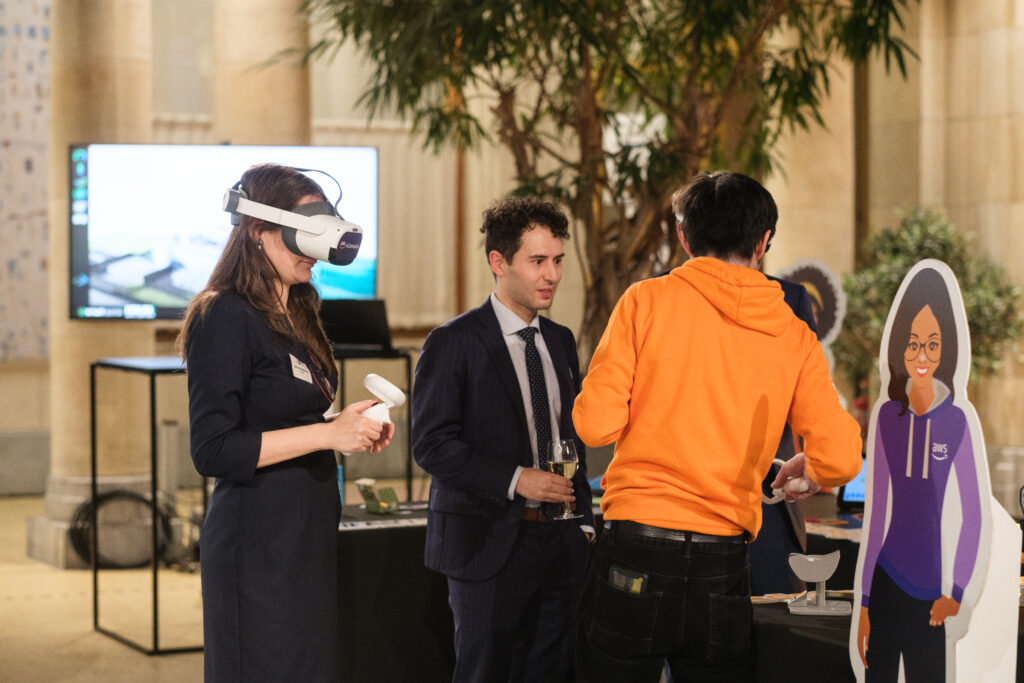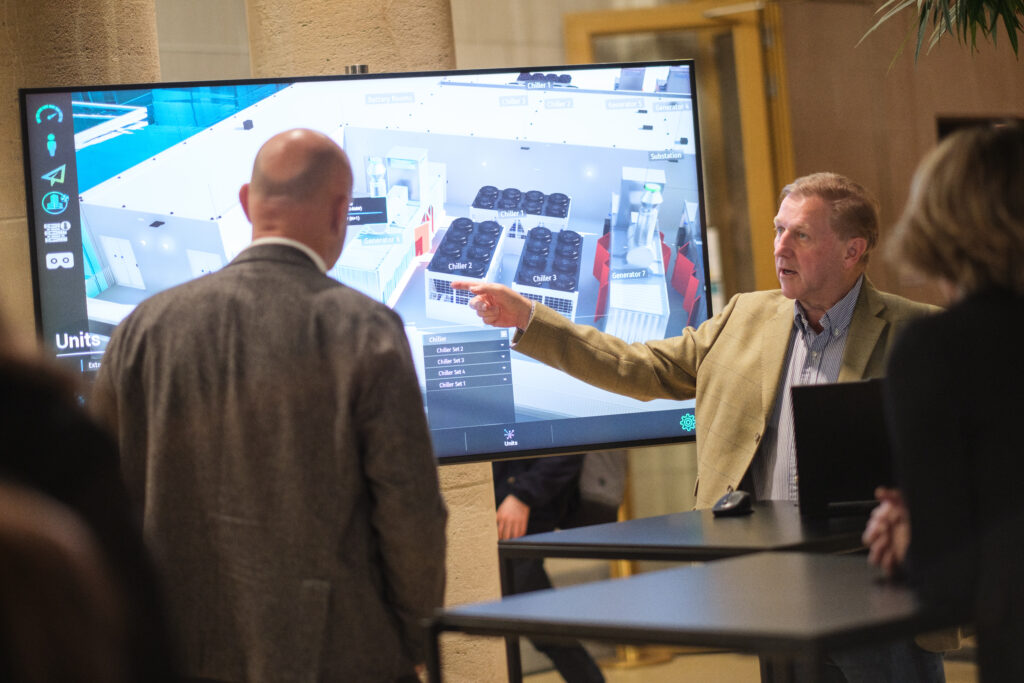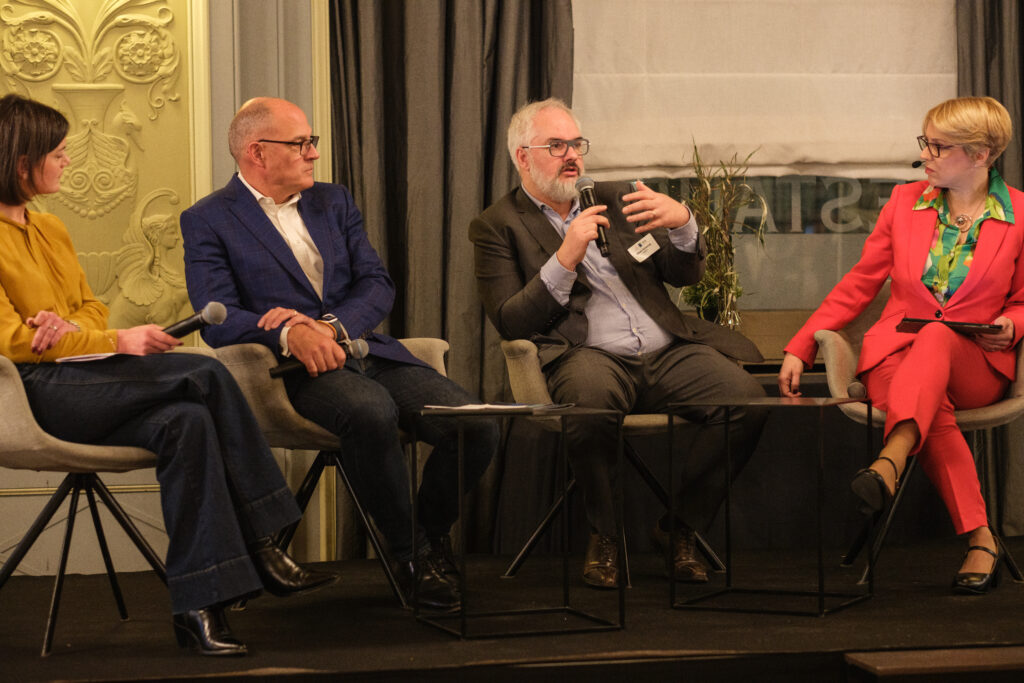
Earlier this month, policymakers, industry leaders, and stakeholders gathered at the Residence Palace in Brussels for Demystifying Data Centres: The Backbone of the EU’s Twin Transition. The event illuminated the indispensable role data centres play in driving the European Union’s vision of a sustainable and digitally advanced economy.
The evening kicked off with an industry discussion on how data centres are driving Europe’s digital and green transitions. Panellists reflected on the regulatory landscape over the past five years, highlighting the industry’s contributions to sustainability and innovation.
As Europe charts its course for the next five years, harmonized regulations emerged as a key priority. Alban Schmutz, CISPE Board Member, emphasized the importance of continental alignment, stating:
” The data centre industry is often misunderstood. While we’ve made real progress toward meeting climate neutrality goals, too many regulations can slow things down. It’s crucial for policymakers to work hand in hand with the industry to set clear, practical targets that help move us forward, without overcomplicating things or stifling innovation. Consistency across Europe is key. Having harmonized legislation would allow the industry to operate efficiently and scale faster to support Europe’s digital and green goals.”
Robust and sustainable data centre infrastructure is fundamental to Europe’s digital economy. Michael Winterson, EUDCA Managing Director underscored this point:
“If we don’t deliver the digital infrastructure, there will not be a digital economy in Europe—at least not one to compete with China or North America. Data centres are an essential element of this transformation.”
The conversation also spotlighted the industry’s proactive role in advancing sustainability Niamh Gallagher, Director Infrastructure Public Policy, AWS articulated the potential of data centres to drive positive change, stating:
“Data centres and the cloud technologies they enable are key to accelerating Europe’s twin energy and digital transitions. Amazon already matches 100% of the electricity it uses in its operations with renewable energy and AWS has a goal be water positive by 2030, returning more water to communities than we use in our operations. Carbon free power is a core part of digital business growth, and to achieve it we need significant investment in grids and enabling policies, which will also support Europe’s competitiveness. At Amazon, we’re here to innovate, contribute to, and enable Europe’s bright future.”
As the new College of European Commissioners have embarked on the first weeks of its political mandate, it was timely to hear from DG Energy on their vision for the next five years. Robert Nuij, Deputy Head of Unit, emphasized the critical role of data centres, stating:
“It is clear that data centres are the backbone of digital infrastructure, and we must ensure that this infrastructure can grow. We are eager to continue the dialogue with the industry. We are excited to engage on these issues in the coming months and years to support both decarbonization and digitalization transitions.”
Additionally, Veronica Manfredi, Director for Zero Pollution at DG Environment, highlighted that data centres are more energy-efficient and sustainable than commonly perceived. She also underscored the urgent need for investment in modernizing water infrastructure, particularly by reducing pipeline leakage and implementing smart metering. Manfredi noted that data centres, with their technological expertise, have the potential to play a transformative role in optimizing these systems.
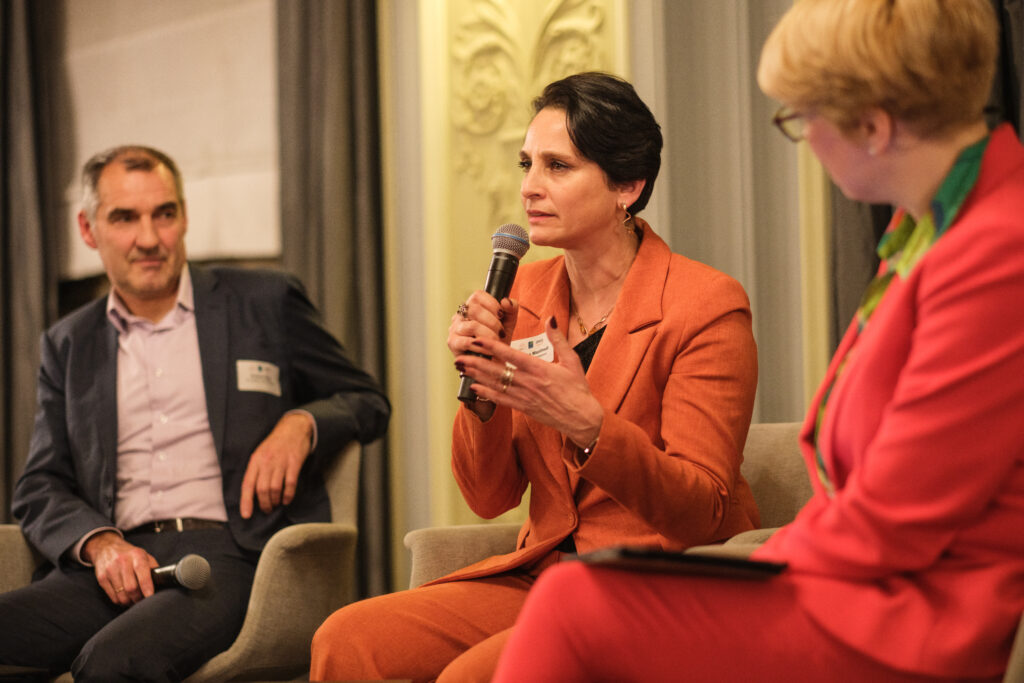
A lively debate among Members of European Parliament further addressed the pressing issues of sustainability and equity. As the digital revolution reshapes societies, data centres are pivotal for powering AI, cloud computing, and online services. However, their growing energy demands raise concerns about sustainability and equity.
In a discussion, MEP Barry Cowen (Renew Europe, Ireland) highlighted the economic significance of data centres in Ireland, stating,
‘’Without data centres, there’s no cloud computing, there’s no e- commerce, there’s no online banking. When I think of data centres, I think in my own country, I think that 20% of our corporate tax revenue is generated by the ICT industry. I think that 7% employment is generated in Ireland by the ICT industry. And I think our climate resonates with the industry and suits the industry.
Yet he warned of Europe’s high energy costs and energy security vulnerabilities, calling for bold measures like a European super-grid leveraging renewable energy sources.
MEP Nicolás Casares (S&D, Spain) echoed the importance of renewables and stressed equitable growth, calling for inclusive planning to avoid alienating local populations and investing in in increasing renewable energy capacity.
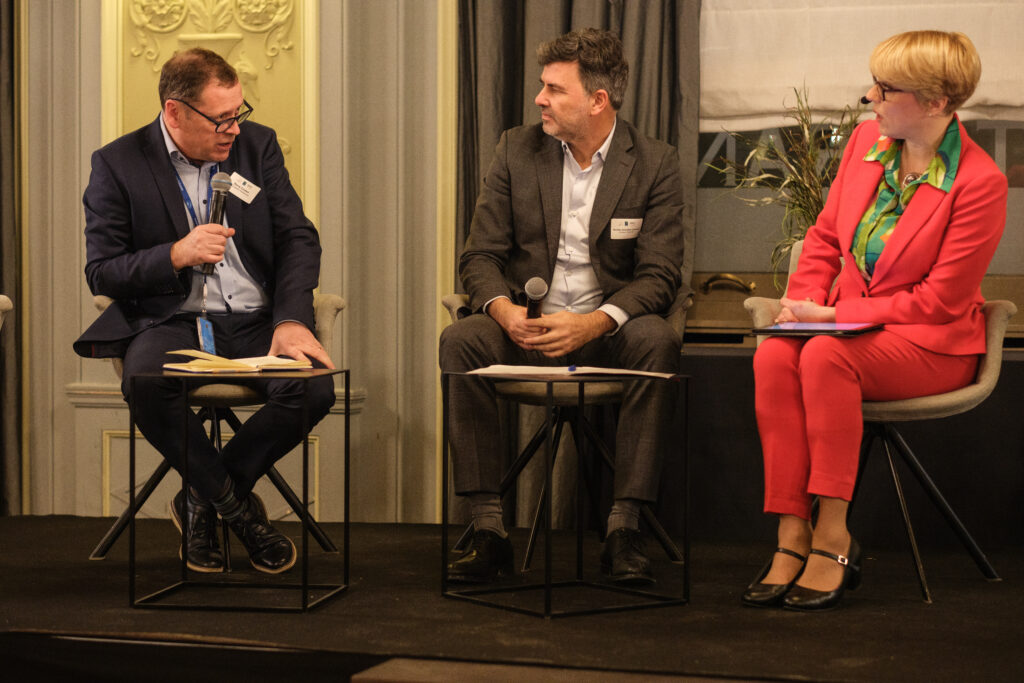
The event offered a deep dive into the evolving landscape of data centres, featuring six thematic zones where guests participated in an interactive knowledge hunt, engaging with leading industry experts to gain valuable insights.
- Design and construction of data centres: Discussions focused on the diverse types of data centres—hyperscale, colocation, and edge—and their roles in supporting modern digital services. Experts explored site selection, design considerations, and resilience strategies for extreme conditions.
- Cooling and efficiency: This zone addressed methods to improve water and energy efficiency, emphasizing standards like Water Usage Effectiveness (WUE) and Power Usage Effectiveness (PUE). Cooling technologies, including liquid and air systems, were analyzed for their performance, cost-effectiveness, and adaptability to climatic conditions.
- Heat reuse: The potential for utilizing waste heat from data centres was examined, showcasing successful projects that provide district heating and exploring the feasibility of co-locating data centres with heating systems for improved efficiency.
- Decarbonization strategies: Experts highlighted pathways to carbon-neutral operations, including clean energy procurement, Power Purchase Agreements , and investments in energy storage to balance the intermittency of renewable sources.
- Debunking data centre myths: Misconceptions about data centres, such as their environmental impact, job creation potential, and the notion of the cloud negating their necessity, were addressed with factual insights into their economic and technological importance.
- Technological evolution: The impact of AI and next-generation technologies on data centre design and operations was explored, emphasizing their role in accelerating decarbonization and driving innovation in infrastructure to meet emerging digital demands.
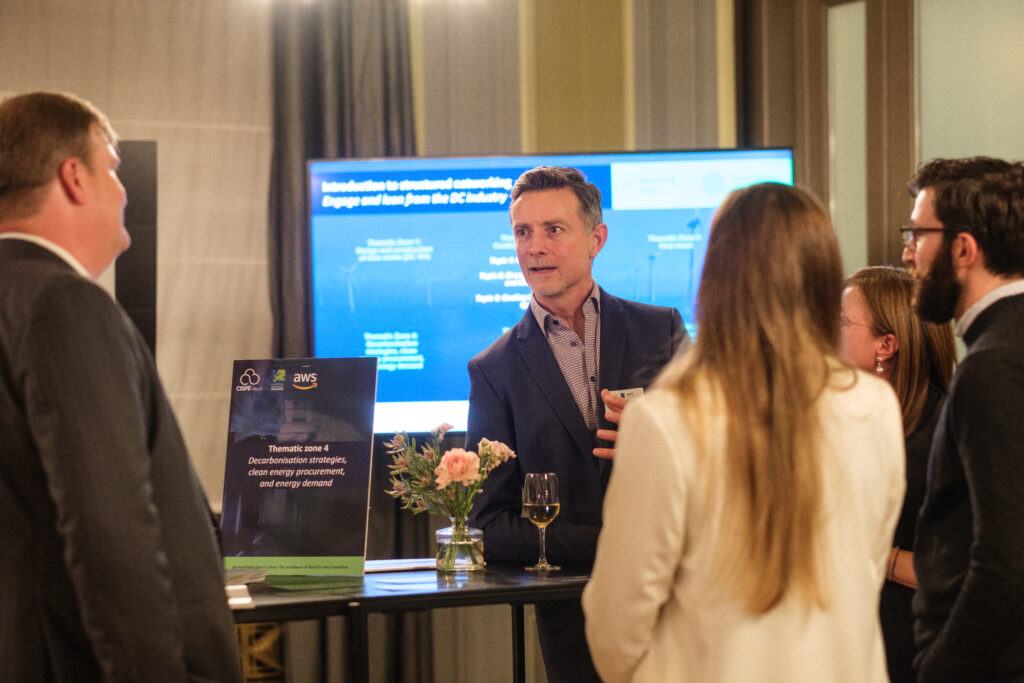
To conclude the experience, guests were given the exclusive opportunity to embark on a virtual journey, starting from CyrusOne’s campus in Hanau, Germany, and stepping into Vertiv’s AI-Ready Data Center through cutting-edge VR technology. They also explored KevlinX’s Digital Twin of its Brussels facility, gaining real-time insights that enhance transparency and sustainability. Additionally, AWS showcased immersive virtual reality experiences, demonstrating how these innovations positively impact the communities where AWS operate their global infrastructure.
